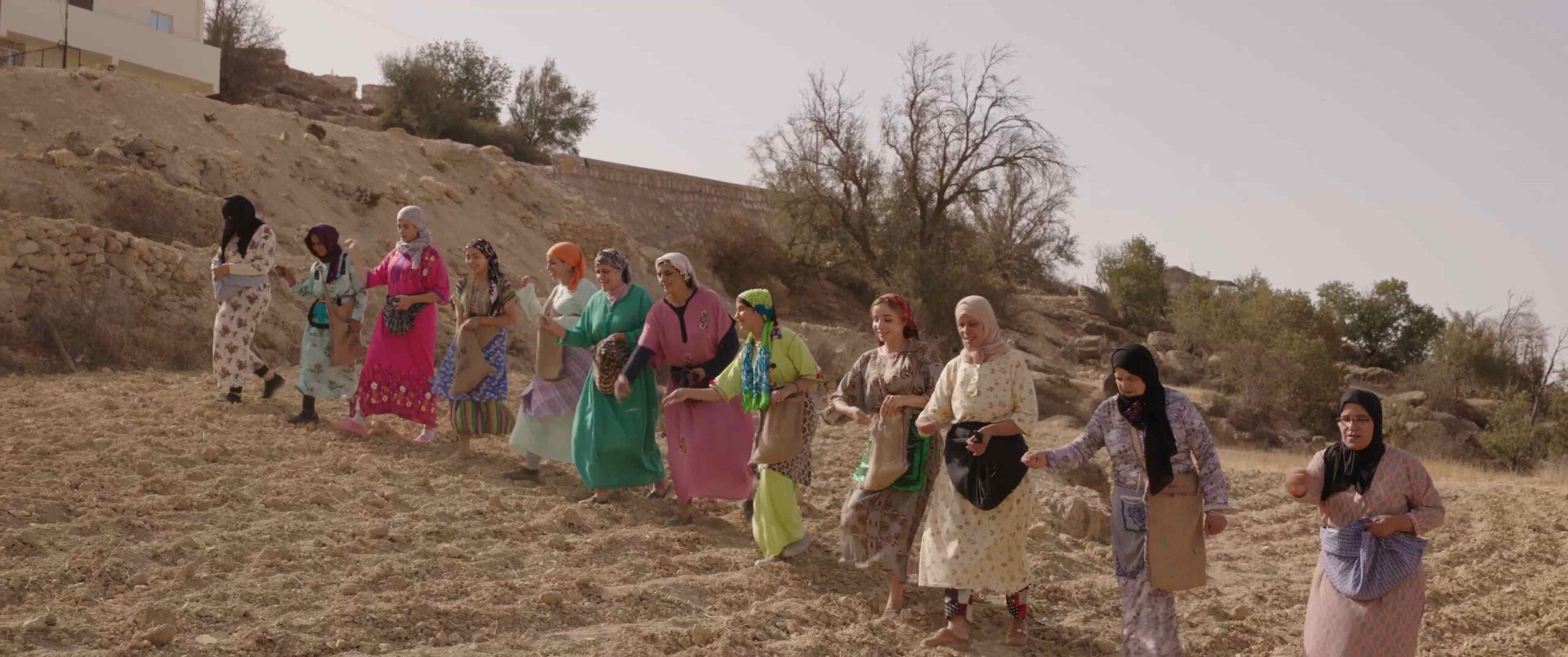Goundafa, the Cursed Song
.
VERDICT: The influence of a conservative new imam on a Moroccan tribal village is an economic, emotional and cultural disaster in ‘Goundafa, the Cursed Song’, which neatly embraces the simplicity of the people and their ancient lifestyle.
The destructive influence of Islamic fundamentalism on African families has been chronicled in several memorable regional films, most notably in Abderrahmane Sissako’s tragic masterpiece Timbuktu (2014), in which the harsh regime of a religious government tears a family of dune dwellers apart. Ali Benjelloun’s first feature, Goundafa, the Cursed Song, is far less ambitious, with a story that slips too easily from simplistic drama to farce. But it gets an important message across to local Moroccan audiences who are on the fence about the consequences of following a repressive version of religion. It bowed in Cairo’s eclectic Horizons of Arab Cinema.
The events recounted in the screenplay by Hassan Benjelloun and Ali Benjelloun transpire in a traditional stone village in Goundafa, an arid region near Marrakesh and the Atlas mountains, where the villagers enjoy a happy, carefree life sowing seeds and singing folk songs. Their innocent joy is overturned when the mosque’s new Fkih takes an ultra-hard line to music, dance and even puppetry. Preaching to the village men that these are all sins and must be eradicated, the imam (a sinister Abderrahim El Maniari) holds sway by extension over their wives and children. Nevertheless there is pushback, especially on the part of three young musicians who are about to sign a reording contract.
The film opens on a puppet show in which Riffian (Farouk Aznabet) tells a progressive fable about a greedy rich man. This is how he earns his living, but on the imam’s orders he burns his puppets and, in a shocking scene, brands his son Said’s mouth with a hot poker so he will be unable to play his flute. Tragedy ensues, but the tension is lacking to grip audiences with much more than a sense of indignation. Even that is quickly dissipated.
As singing and music-making vanish from the village, so does the source of income for many families. Meanwhile, new sins are added to the list: television, football matches, cards, much to the dismay of the local restauranteur. Also outlawed is marrying the woman you love, as Said was about to do, on the grounds her mother is a widow. The atmosphere is dark and glum until the women of the village band together and, taking a tip from ancient Greek comedy, refuse to cook or sleep with their husbands until things loosen up. But then another tragedy strikes, calling on the mother Fadma (played with real acting skill by Fatima Attif) to make a solitary journey to Casablanca to bury the body when her husband refuses.
In spite of the narrative switchovers, Benjelloun extracts true emotion in the film’s final scenes where it is again the women who cut through the aura of the town’s tin-plated false prophet and follow the real traditions of Islam. It opens the story up for a melodic and soulful choral love song, a valuable interlude that reinforces the message that music can be divine.
Director: Ali Benjelloun
Screenwriters: Ali Benjelloun, Hassan Benjelloun, with Hugues Nonn
Producer: Hassan Benjelloun
Cast: Fatima Attif, Farouk Aznabet, Abdellatif Atif, Karima Gouit, Aziz Dhequir, Jamal Taamart, Amina Elliq, Mohamed Aduragh, Zahia Ez-Zahery, Said Darif, Abderrahim El Maniari, Khadija Sakarine, Zahra El Mahboul
Cinematography: Hamza Benmoussa
Production design: Abderrahim Abat El Mostafa Lehmidi
Costume design: Abdelouahab Benhaddou Malika Aakil
Editing: Ilias Lakhmasse
Music: Marat Faizullin
Sound: Mehdi Marhoum El Filali, Adil Aissa
Production companies: Bentaqerla Productions
Venue: Cairo Film Festival (Horizons of Arab Cinema )
In Arabic
96 minutes

